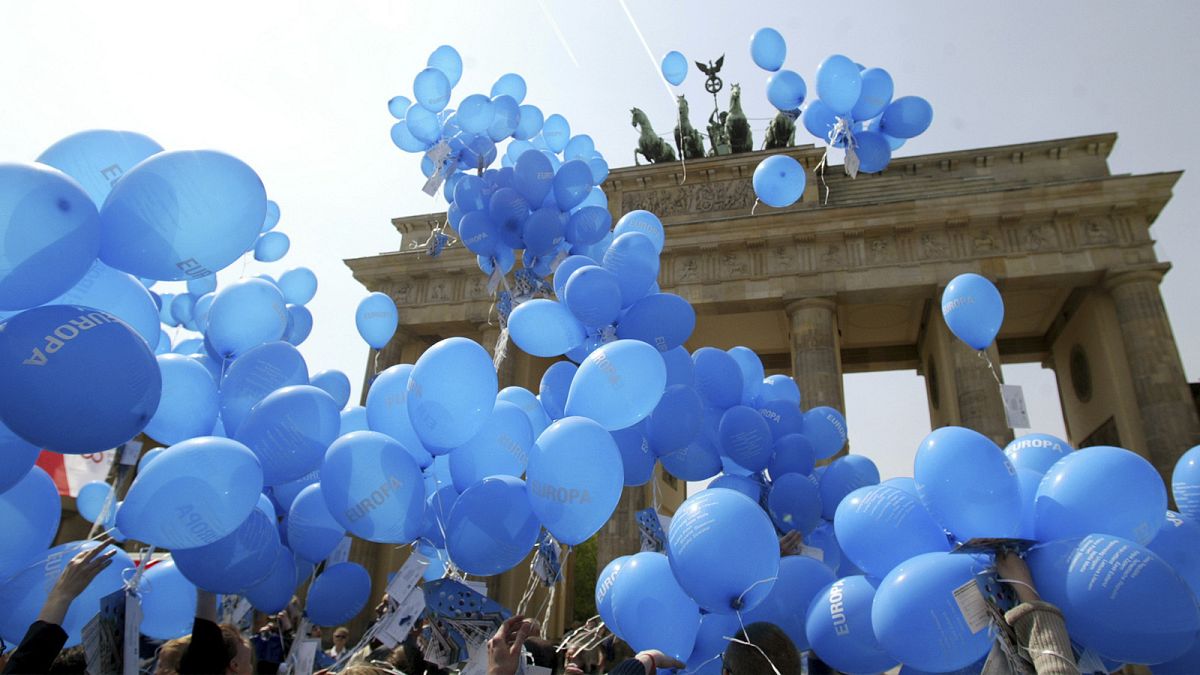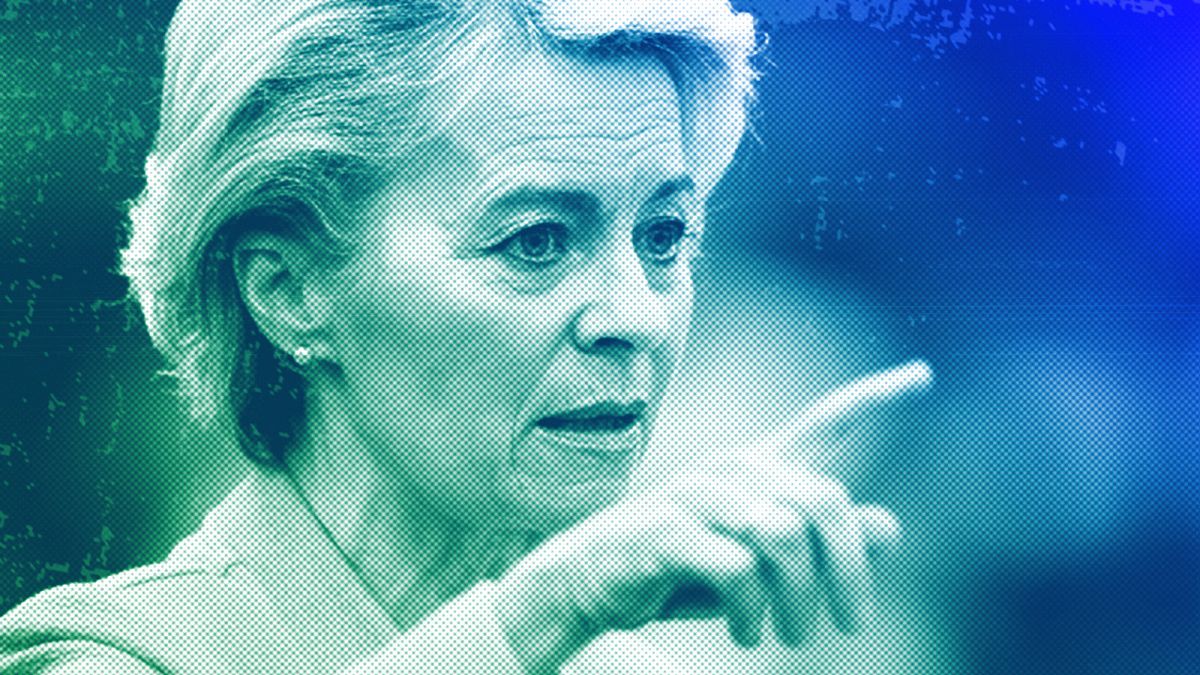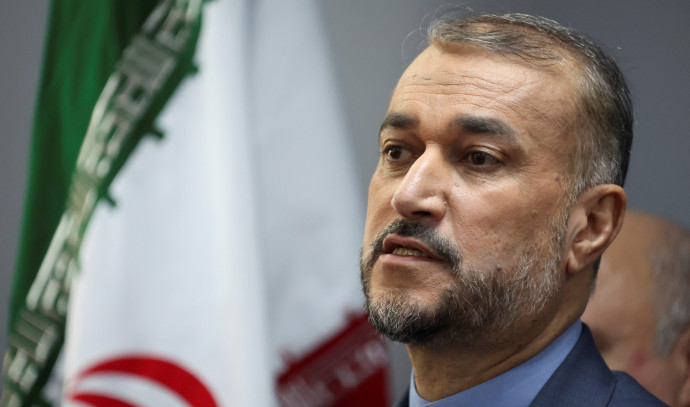World
EU warns of 'serious consequences' as Bosnian Serbs mark breakaway day
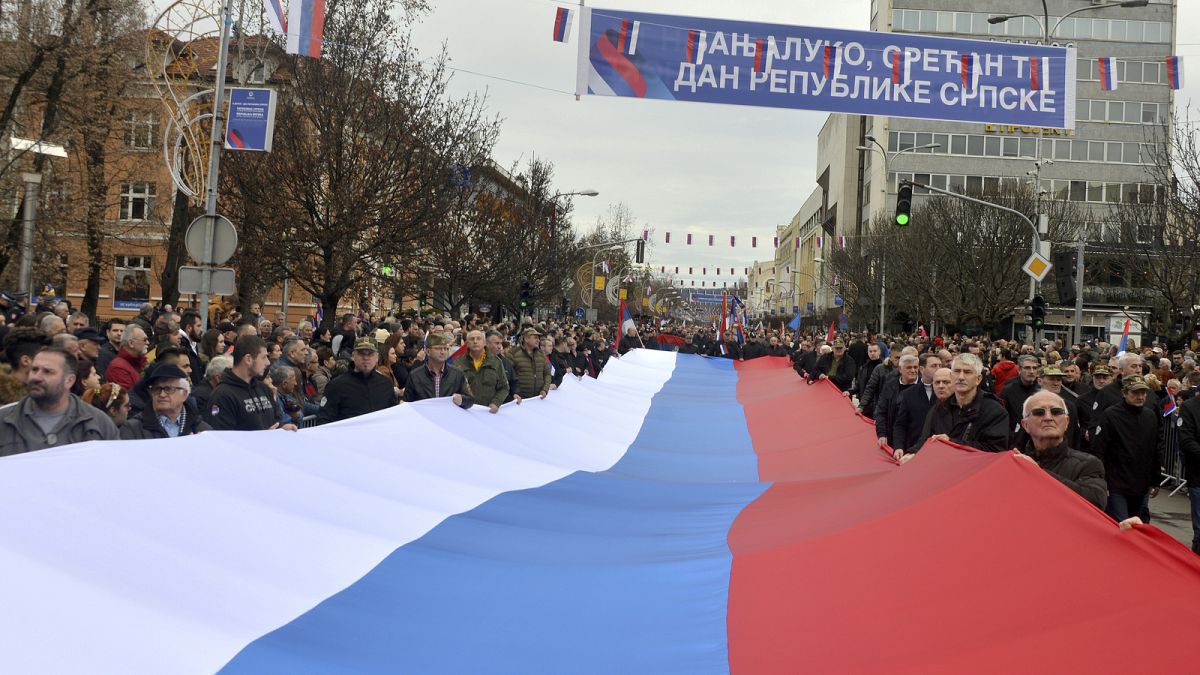
Brussels has sounded the alarm over celebrations planned in Bosnia and Herzegovina’s post-war Serb region, the Republika Srpska, to mark its breakaway anniversary.
The so-called ‘Republika Srpska Day’ celebrates the region’s 1992 claim of independence from Bosnia during the breakup of Yugoslavia, which led to a bloody interethnic war that claimed 100,000 lives.
The commemoration, which coincides with a religious Orthodox holiday, has been deemed unconstitutional by Bosnia and Herzegovina’s Constitutional Court because it discriminates against non-Serbs.
Tuesday’s events come amid increasing tensions as Republika Srpska’s President Milorad Dodik, widely seen as a Kremlin ally, ratchets up secessionist threats, prompting international concern. Dodik has vowed to “declare full independence” of Bosnia’s Serb-controlled regions should Western democracies attempt to intervene in the country’s shared, multi-ethnic institutions.
The European Commission reaffirmed on Tuesday the bloc’s long-standing opposition to any act that undermines the Balkan country’s territorial integrity.
“When it comes to the legality of the ‘Republika Srpska Day,’ the Constitutional Court of the country already ruled twice in 2015 and 2019 that the legislation in Republika Srpska about the ‘Republika Srpska Day’ is not in line with the Constitution of Bosnia and Herzegovina,” said Peter Stano, spokesperson for foreign affairs.
“The European Union has always emphasised that the sovereignty, territorial integrity, constitutional order and international personality of Bosnia-Herzegovina need to be maintained,” Stano added.
“Any action against these principles will lead to serious consequences.”
On the eve of the celebrations, the United States flew F16 fighter jets above Bosnia and Herzegovina in a show of support. Its embassy in Sarajevo also called for an investigation into the celebrations and said it would “not hesitate” to act in response to acts that violate the 1995 US-brokered peace deal.
Breakaway threats spark concerns
Republika Srpska, whose 1.2 million population is made up mostly of Orthodox Christian Serbs, is one of the two entities of Bosnia and Herzegovina. The second entity, the Federation of Bosnia and Herzegovina, is made up of mostly Bosniaks and Croats.
Both entities were formed under the 1995 Dayton Agreement, which brought the three-year Bosnian war to an end and split the country into two entities along ethnic and religious lines.
The country’s stability and intricate power-sharing arrangements, the result of Western democracy building, are considered precarious and have recently been threatened by President Dodik’s intensified separatist rhetoric.
Adnan Ćerimagić, a senior analyst at the think tank European Stability Initiative, told Euronews that although Dodik’s warnings have not changed in substance over recent months, their increased intensity, combined with a fast-changing geopolitical environment, now merit international attention.
“While the idea of dividing Bosnia-Herzegovina into three mono-ethnic territories is not new, what is new is that Dodik has support not just from Belgrade in Serbia (…) but also from the outside,” Ćerimagić explained.
“It’s the support that comes from certain EU and NATO members like Hungary,” he added. “Just today, the Prime Minister of Hungary, a NATO and EU member, Viktor Orbán has been decorated as part of the celebrations of the Day of Republika Srpska.”
Region’s future in the balance
Serbia’s President Aleksandar Vučić has also lent his support to the controversial cause, promising synchronised fireworks would take place in the Serbian capital of Belgrade on Tuesday evening in a sign of its support for Republika Srpska’s holiday celebrations.
The spat over the commemoration comes less than a month after the international observers from the Organization for Security and Co-operation in Europe (OSCE) found that thousands of ethnic-Serb voters had been bused in from Bosnia and Herzegovina to cast their ballots illegally in the recent Serbian elections.
“We tend to think that this alliance between Vučić and Dodik is, is natural and is explicit, but I would say that it is not,” Berta López Domènech, a policy analyst on the Western Balkans for the European Policy Centre, explained.
“Vučić has used this card of not explicitly supporting Republika Srpska’s secession because he knows that this would be a red line in his relations with Western partners, such as the EU.”
But Ćerimagić believes Belgrade could see its ability to rein in a potential escalation of tensions in Bosnia and Herzegovina as a “bargaining chip” in dialogue with Western partners as they scrutinise the recent results of December’s parliamentary elections, which were marred by allegations of electoral fraud.
Bosnia and Herzegovina has been an official candidate for EU accession since December 2022. However, the opening of accession talks has been stalled by deeply entrenched ethnic divisions and delays in constitutional, judicial and electoral reforms.
EU leaders said in December that the bloc would open accession talks with the country “once the necessary degree of compliance with the membership criteria is achieved.”
But both experts fear Dodik and the Republika Srpska ruling coalition’s increasingly defiant stance could have implications for Bosnia and Herzegovina’s EU membership bid.
“It’s clear that for some member states, a condition to start accession talks (with Bosnia and Herzegovina) is actually to see some of the steps that the ruling coalition in Republika Srpska and Milorad Dodik have done in the past couple of years to be reversed,” Ćerimagić said.
“That means that Milorad Dodik and the ruling coalition in Republika Srpska have a sort of a veto on that EU path,” he added.
Meanwhile, López Domènech warned that “marking a day that celebrates a genocide is clearly not in line with the European Union’s priorities.”

World
Emily Blunt Says She’s ‘Absolutely’ Wanted to Throw Up After Kissing Certain Actors During Filming: ‘I’ve Definitely Not Enjoyed Some of It.”

Emily Blunt got candid during a recent appearance on “The Howard Stern Show” (via People) about how she’s had to fake chemistry over the years with certain co-stars she just struggled to connect with on set. Blunt has acted opposite many high-profile leading men throughout her career, from Matt Damon (“The Adjustment Bureau”) to Tom Cruise (“Edge of Tomorrow”), Dwayne Johnson (“Jungle Cruise”), Ryan Gosling (“The Fall Guy”) and Cillian Murphy (“Oppenheimer”).
“Have you wanted to throw up?” Stern asked Blunt about kissing some of her male co-stars during filming. The Oscar-nominated actor responded: “Absolutely. Absolutely.”
“I wouldn’t say it’s sort of extreme loathing, but I’ve definitely not enjoyed some of it,” Blunt added.
Blunt declined to name any co-star she couldn’t generate chemistry with, but she did say: “I have had chemistry with people who… I have not had a good time working with them.”
“Sometimes it’s a strange thing. Sometimes you could have a rapport that’s really effortless, but it doesn’t translate onscreen,” Blunt continued. “Chemistry is this strange thing. It’s an ethereal thing that you can’t really bottle up and buy or sell. It’s like there or it’s not…It’s just easier when you have a natural rapport with someone.”
Blunt has been acting for so long that at this point she has a formula down for how to build chemistry, saying: “I’ve got to find something I love about everybody. I have to find something … Even if it’s one thing.”
“It might be that they have a nice laugh or I like how they speak to people. They’re polite. I mean, it might be something random,” Blunt explained. “But find something you love about that person or something you love about them as the character and then kind of lean into that.”
Blunt earned an Oscar nomination earlier this year for her supporting role in Christopher Nolan’s “Oppenheimer,” which took home the Academy Award for best picture. She’s currently on the big screen in Universal Pictures’ action romance “The Fall Guy,” co-starring Ryan Gosling.
World
Holocaust survivors visit Auschwitz for annual March of the Living, reflect on Oct. 7 attacks
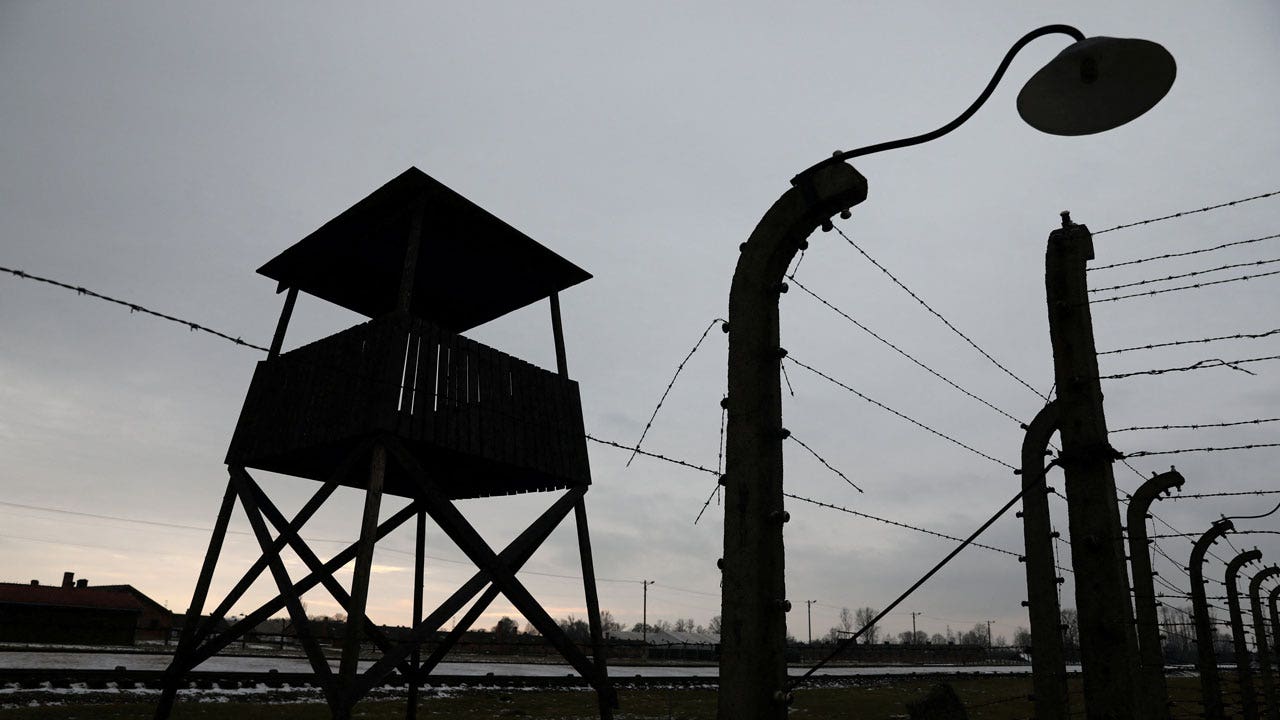
Several thousand Jews, including Holocaust survivors personally affected by the Oct. 7 Hamas attacks on Israel, walked through the former Auschwitz Nazi German death camp on Monday for the annual March of the Living ceremony in Poland.
Walking along the 1.8 mile path towards the crematoria of Birkenau, they paid tribute to the millions of Jews murdered by the Nazis during World War Two.
This year’s ceremony was overshadowed by the events last year when 1,200 people were killed in a Hamas-led rampage through Israeli towns and 253 hostages were taken, according to Israeli tallies.
HOLOCAUST SURVIVORS CONFRONT RISING DENIAL, ANTISEMITISM IN NEW DIGITAL CAMPAIGN
Daniel Louz, a 90-year-old whose hometown Kibbutz Beeri lost a tenth of its residents to the Palestinian attackers, came to the Auschwitz camp on Monday for the first time since his mother’s family was killed there in 1942.
A wooden guard tower stands at the site of former Nazi German concentration and extermination camp Auschwitz II-Birkenau during ceremonies marking the 77th anniversary of the liberation of the camp and International Holocaust Victims Remembrance Day, in Brzezinka near Oswiecim, Poland, on January 27, 2022. (Jakub Porzycki/Agencja Wyborcza.pl via Reuters/File Photo)
“I am convinced that on October 7 in Beeri the good souls (of the Holocaust dead) protected me and did not let the Hamas criminals shoot at our home,” Louz told Reuters. “So that I might be able to tell the story. I am really thankful to you all.”
More than 1.1 million people, mostly Jews, perished in gas chambers or from starvation, cold and disease at Auschwitz, which Germans set up in occupied Poland during World War Two.
More than three million of Poland’s 3.2 million Jews were murdered by the Nazis, accounting for about half of the Jews killed in the Holocaust.
“Prior to October 7 it is my belief … that the worst event in human history happened on these grounds. That this place, the very word Auschwitz, speaks volumes in one word about fear, death, destruction, annihilation,” Phyllis Greenberg Heideman, President of the International March of the Living, said during Monday’s event.
“And then came October 7, and perhaps we have to come as a people to the realization that perhaps in some ways the Shoah (Holocaust) isn’t over for us. It’s not a competition, certainly not a comparison, it’s a continuum.”
World
Tech compliance reports, Newsletter

This week’s key events presented by senior tech and industry reporter Cynthia Kroet
Key diary dates
Monday 6- Wednesday 8 May: High-Level Conference on Antimicrobial Resistance (AMR) organised by the Belgian presidency of the Council of the EU.
Monday 6 May: Deadline for online platforms regulated under the Digital Services Act to submit transparency reports.
Tuesday 7 May: NGO Seas at Risk to publish report on under-sea mining.
In spotlight
EU platform rules return to the spotlight this week, since today (6 May) is the deadline for the largest online platforms – those with more than 45 million users per month – to hand in their transparency reports under the Digital Services Act (DSA).
It’s the second batch of reports after the stringent rules started applying to the likes of Facebook, Amazon and TikTok last August.
With the submission of the first reports in October, platforms were scrutinised over the low number of content moderators they had in some of the smaller EU member states. Facebook has a single employee looking at Maltese content, and three in Estonia, claiming that much of the process is automated. In comparison, TikTok, which has fewer users per month, has six people looking at Estonian content and none for Maltese.
In light of the latest DSA probes started by the European Commission last week: into Facebook’s and Instagram’s handling of disinformation and ability to stop Russian fake news, all eyes will be on platforms’ election preparedness. And it remains to be seen if the social media platforms have taken more action compared to half a year ago.
With just about a month to go to the European Parliament election, the Commission is trying to ramp up platform preparedness for the poll. Stress-tests last month (24 April) were designed to help mitigate risks that may impact the integrity of elections and their services, for example.
However, as the latest Facebook and Instagram probes show, the Commission largely counting on the willingness of mother company Meta to comply; since there is no deadline for when the probes might end.
Policy newsmakers
@Kergueno @Uspaskich
MEPs interests
MEPs collectively earn more than €8.6 million a year from outside jobs – including from private companies that also actively lobby on EU policy, according to a report published by Transparency International EU today (6 May). Topping the list is Lithuanian MEP Viktor Uspaskich, who declares €3,000,000 per year working for a company called Edvervita UAB. The group, including Raphaël Kergueno, senior policy officer at Transparency, has called for EU lawmakers to be banned from moonlighting, as figures show over two thirds of the 705 deputies disclose activities in addition to their core role.
Policy Poll
Should MEPs elected to the next European Parliament be permitted remuneration:
From MEP salary alone
From additional side jobs
Subscribe here to see the results of last week’s poll and stay informed on the latest EU policy developments with our weekly newsletter, “The Policy Briefing”. Your weekly insight on European rulemaking, policy issues, key events, and data trends.
Data brief
-

 News1 week ago
News1 week agoBoth sides prepare as Florida's six-week abortion ban is set to take effect Wednesday
-

 Politics1 week ago
Politics1 week agoColumbia University’s policy-making senate votes for resolution calling to investigate school’s leadership
-

 Politics1 week ago
Politics1 week agoGOP Rep. Bill Posey won't seek re-election, endorses former Florida Senate President as replacement
-

 World1 week ago
World1 week agoBrussels, my love? MEPs check out of Strasbourg after 5 eventful years
-

 World1 week ago
World1 week agoRussian forces gained partial control of Donetsk's Ocheretyne town
-

 Politics1 week ago
Politics1 week agoHouse Republicans brace for spring legislative sprint with one less GOP vote
-

 World1 week ago
World1 week agoAt least four dead in US after dozens of tornadoes rip through Oklahoma
-

 Politics1 week ago
Politics1 week agoAnti-Trump DA's no-show at debate leaves challenger facing off against empty podium


